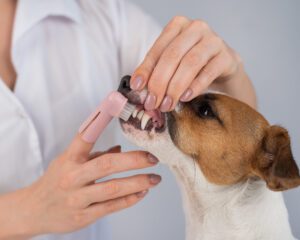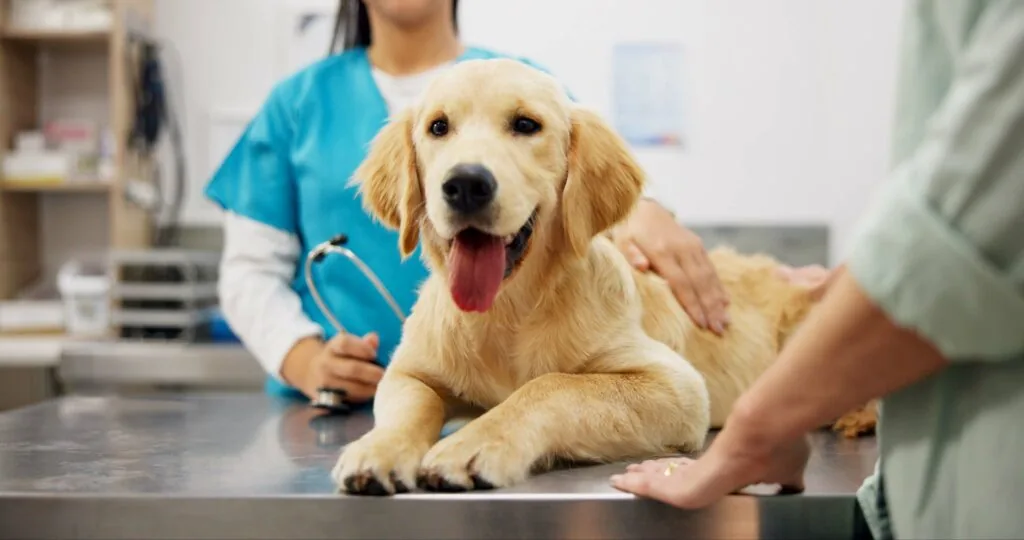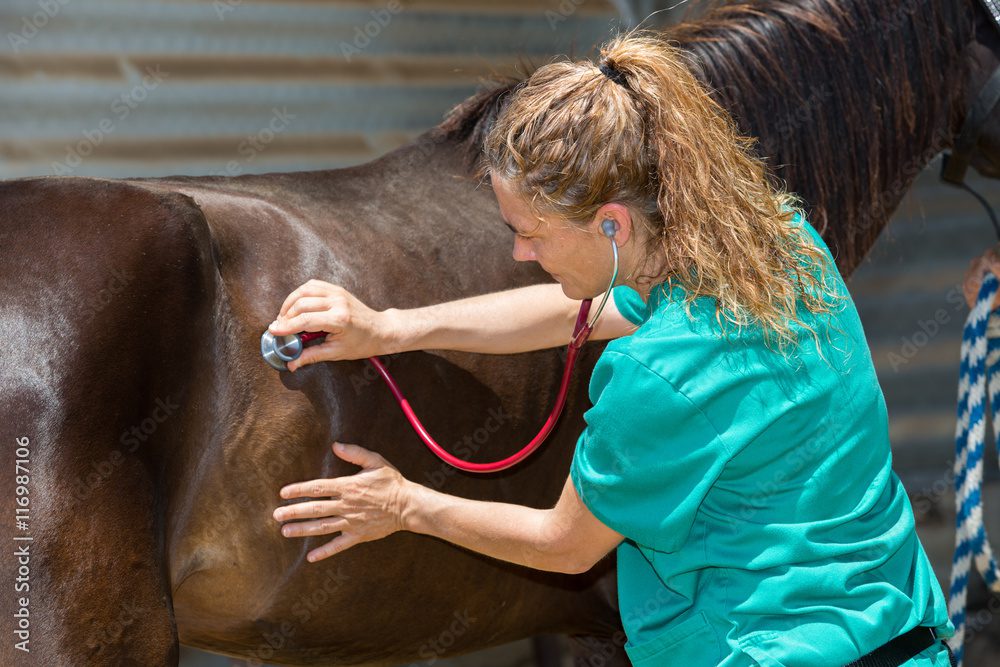5 Tips for Brushing Your Dog’s Teeth at Home and the Difference it Makes for Your Pet’s Oral Care
Caring for your dog’s teeth is more than just a cosmetic concern – it’s a key part of their overall health. But, let’s face it, brushing your dog’s teeth might not be the easiest task. That’s why we’re here to help! This blog will guide you through practical tips to make teeth brushing a smoother experience for you and your dog. And if you need more guidance or want to schedule a dental check-up, Southcentral Veterinary Services in Bowling Green, KY is just a call away at (270) 282-2564.

The Importance of Dog Dental Care
Did you know that dental health can have a significant impact on your dog’s quality of life? Poor oral hygiene can lead to problems like bad breath, tooth decay, and even more serious health issues. Routinely brushing your dog’s teeth is a key step in preventing these problems. By removing plaque and bacteria, you’re not just keeping their teeth clean; you’re contributing to their overall good health.
How to Get Started with Your Pet’s Home Treatment
Here’s how to prepare for your pet’s at-home dental care routine. If you ever have questions on getting started, feel free to call us.
1. Choosing the Right Teeth Cleaning Tools
The right dental tools can make a world of difference for your pet. First, pick a dog-specific toothbrush. They come in various sizes to suit all breeds, and some even fit over your finger for easier control. Then, choose a dog-friendly toothpaste. Human toothpaste isn’t safe for dogs, so it’s important to use a product specifically designed for pets. These toothpastes come in flavors like chicken or beef, which can make the experience more enjoyable for your pup.
2. Creating a Positive Experience
Start by slowly introducing your dog to the idea of teeth brushing. Let them sniff and lick the toothbrush and toothpaste. You can even use the toothpaste as a treat at first. Gradually work up to brushing, starting with just touching the brush to their teeth. Reward them with praise and treats throughout the process. This positive reinforcement helps your dog associate teeth brushing with good things.
3. Establishing a Routine
It’s important to be consistent. Try to brush your dog’s teeth at the same time every day so it becomes part of their routine. Even a few minutes daily can make a big difference in their oral health. If daily brushing isn’t possible, aim for at least three to four times a week.
4. Gentle Brushing Techniques
When brushing your dog’s teeth, be gentle. Use circular motions, focusing on the outside surfaces of the teeth where plaque tends to build up. Don’t forget to brush along the gum line, but be careful not to press too hard as this can be uncomfortable for your pet.
5. Knowing When to Call a Professional
While regular home brushing is important, it’s not a substitute for professional dental care. If you notice any signs of dental issues, like bad breath, loose teeth, or bleeding gums, it’s time to call Southcentral Veterinary Services at (270) 282-2564. Our team can provide a thorough dental examination and professional cleaning services to ensure your dog’s mouth stays healthy.
The Benefits of Regular Teeth Brushing
Brushing your dog’s teeth regularly is more than just keeping bad breath at bay; it’s about maintaining their overall oral health and preventing a range of problems that can affect their comfort and well-being. When you incorporate teeth brushing into your pet care routine, you’re taking proactive steps to:
- Prevent Plaque and Tartar Buildup: Just like humans, dogs can develop plaque and tartar on their teeth. This buildup can lead to gum disease, tooth decay, and even tooth loss. Regular brushing helps remove plaque before it hardens into tartar, keeping your dog’s mouth cleaner and healthier.
- Reduce the Risk of Gum Disease: Gum disease is one of the most common issues seen in dogs. It can cause pain and infection and can lead to more serious problems affecting the heart, liver, and kidneys. Brushing your dog’s teeth reduces their risk of developing gum disease.
- Detect Dental Problems Early: Regular brushing sessions are a great time to check your dog’s mouth for any signs of problems, such as swollen gums, cracked teeth, or unusual growths. Early detection means earlier treatment.
- Save Money on Veterinary Bills: Preventive care, including teeth brushing, can save you a significant amount of money in the long run. Dental procedures for dogs can be costly, especially if they require extractions.
- Improve Overall Health: Poor oral health doesn’t just affect the mouth; it can have systemic effects. Bacteria from the mouth can enter the bloodstream and affect various organs, leading to serious health conditions.
- Enhance Quality of Life: A dog with healthy teeth and gums is a happier dog. They can eat comfortably, play without pain, and interact more positively with you and other pets.
Additional Dental Care Tips
Besides brushing, other dental care practices can help maintain your dog’s oral health. Dental treats and toys designed to reduce plaque and massage gums can be effective. Regularly checking your dog’s mouth for any abnormalities is also important. And, of course, regular dental check-ups at Southcentral Veterinary Services are key to keeping your dog’s mouth healthy.
Caring for your dog’s teeth at home is a vital part of their health care, but it doesn’t have to be a challenge. With these tips, you can make teeth brushing a more enjoyable and effective routine. And remember, for any dental concerns or to schedule a check-up, contact Southcentral Veterinary Services in Bowling Green, KY at (270) 282-2564.
Share This
Recent Posts
About Southcentral Veterinary Services
Southcentral Veterinary Services is here to ensure that you and your pet can access a variety of high-quality, progressive medical services. Our aim is to serve our patients and clients with integrity, compassion, and a focus on being your primary family vet.



